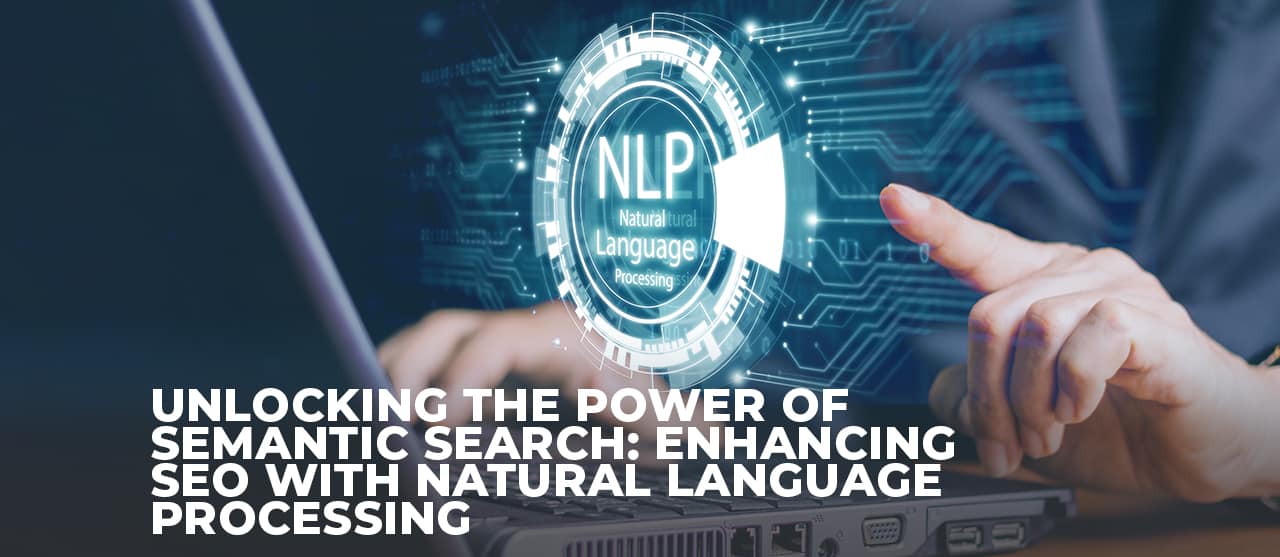
Every organization today wants to appear in the top 10 search results of Google. But this is easier said than done! Enhancing SEO and optimizing a website and content to improve visibility and ranking on search engine results pages (SERPs) goes way beyond quality content.
In addition to integrating appropriate keywords and driving on-page optimization, organizations must uncover new ways to attract more organic traffic. Learn how you can enhance SEO and unlock the power of semantic search with Natural Language Processing (NLP).
Semantic Search – A Critical Component Of Modern-Day SEO
SEO and semantic search are closely related concepts that greatly influence the ranking of websites and the ability of search engines to deliver relevant results. While SEO focuses on optimizing websites and content to improve their visibility in SERPs, semantic search aims to understand the intent and context behind a user’s search query.
The primary goal of SEO is to attract organic traffic by ensuring that a website appears as high as possible in search results for the relevant keywords and queries. On the other hand, the primary goal of semantic search is to go beyond simple keyword matching and provide more accurate and relevant results.
Semantic search engines use NLP and machine learning technologies to comprehend the meaning of words and the relationships between concepts. They analyze context to understand search queries and provide results that match intent. By understanding understand natural human language, semantic search:
- Analyzes the context and meaning of the search query – it understands synonyms, related concepts, and the overall context of the query to provide more accurate results.
- Identifies relationships between keywords and concepts and drives greater contextual relevance by linking a user query with context and intent.
- Rewards high-quality, valuable, and relevant content while downgrading websites that rely on keyword stuffing and low-quality content.
- Aligns content with the different stages of the user’s search journey, thus catering to user needs better and improving search rankings.
- Processes human language to extract relevant information from unstructured text while identifying people, places, and organizations in search queries for more precise results.
- Employs techniques like latent semantic indexing (LSI) and knowledge graphs to unearth statistical co-occurrence of words and understand the connections between entities and concepts.
Leveraging NLP To Boost SEO
As semantic search takes center stage, embracing the power of NLP is a great way to boost SEO. Here’s how NLP can help:
1. Keyword Research
NLP tools can help you identify relevant keywords and key phrases that users use to search for content. This can help you curate content that aligns with user intent, increasing the chances of ranking higher in search.
2. Search Optimization
Using NLP, you can optimize your content for semantic search. As search engines become increasingly sophisticated in understanding the context and meaning behind user queries, NLP can help you focus on related concepts and synonyms rather than just exact keyword matches.
3. Natural Language Content
Modern NLP algorithms can help you write content in a natural language, reflecting how users typically search for information on the web. You can use the technology to identify common language patterns, incorporate them into your content, and make it more user-friendly and search engine-friendly.
4. User Intent And Sentiment Analysis
NLP tools can assist you in understanding the intent behind search queries. You can use this information to create content that directly addresses user needs and provides valuable answers to their questions. You can also use these tools to monitor and analyze user sentiment around your brand, take steps to improve engagement and boost search rankings.
5. Content Optimization
With NLP, you can also analyze your existing content and identify areas for improvement. You can determine which topics are popular, which keywords are trending, and what user concerns your content may not adequately address — thus driving efforts in improving context and relevance.
6. Competitor Analysis
You can also utilize NLP to conduct frequent and comprehensive competitor analysis. This can help you to benchmark your content against industry standards, identify gaps in your content strategy, and discover untapped opportunities for your SEO efforts.
7. Voice Search Optimization
With the rise of voice-activated devices, optimizing for voice search is crucial. NLP can help in better comprehending natural language voice queries, enabling you to create better content and, thus, better search results. In the long run, the technology can help in improving accuracy.
8. User Experience (UX) Enhancement
NLP can help analyze user behavior on your site and provide insights into improving the overall experience. You can use advanced algorithms to identify behavioral patterns and build content that leads to higher engagement, longer visit durations, and better SEO performance.
In A Nutshell
As a powerful tool, NLP offers several opportunities for organizations to build (and maintain) a robust and well-rounded SEO strategy. With semantic search becoming more and more popular, NLP can help users find the information they need more effectively.
The technology can also help in handling complex queries and large volumes of unstructured data. From better content creation to better user intent analysis, integrate NLP into your SEO approach today to enhance your website’s visibility, attract more relevant traffic, and ultimately drive better semantic search.
EnFuse Solutions is a rapidly emerging digital service company offering result-driven SEO solutions for various industries. To learn more about how we can help you to grow your business feel free to contact us any time.

















Comment